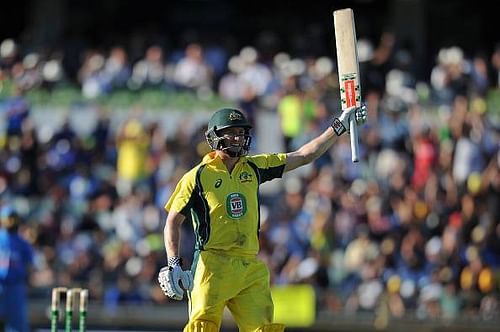
MS Dhoni is still not convinced about DRS despite Bailey decision

India's ODI captain MS Dhoni admitted he is “still not convinced” about the Decision Review System (DRS), despite India missing out on dismissing George Bailey for a golden duck after the right-hander gloved a ball to Dhoni.
Bailey went on to score 112 and was involved in a 242-run match-winning partnership with Australian captain Steve Smith as Australia comfortably chased India’s 309/3.
India are the only country who do not use the controversial system that was put in place to reduce howlers by umpires and Dhoni stood by his stance of not accepting DRS by saying that the current system isn’t in place to make the right decision, but more as a means to justify umpires’ calls.
"It could have (changed the outcome of the game)," Dhoni said of the Bailey decision. "But at the same time, we need to push the umpires to take the right decision. You have to see how many 50-50 decisions don't go in our favour. And it always happens that you have to take it but I am still not convinced about DRS.”
"From behind, unless it's very clear, it is always difficult to tell. It sounded like glove, but if you ask me if I was 100% sure, I won't say I was. It happens, you appeal sometimes, it goes in your favour, and sometimes it doesn't.”
Variables too big to accept DRS in current form: Dhoni
"Ideally, what the DRS should be, it should be a decision-making system,” he said. “If you see the deviation in the DRS, there's a bit of it. Even the makers agree that deviations can happen.
“And now, you have to take into account whether it was given out or not. And if it was not-out, then half the ball needs to hit the stump and all that. So that itself makes the variables too big. And in cricket every inch, every millimetre matters.”
The Indian limited-overs captain also added that the current system serves as merely a justification of the umpire’s decision.
“DRS shouldn't be umpires decision justification system," he added. "In tennis, there is nothing which says 'the umpire has given it out, and half the ball needs to pitch inside the line, and if he has given it not out, then the scenario is different'. The rules need to be plain and simple.
"You need to say this is what DRS is. It doesn't matter whether you are given out or not out, if half the ball hits the stumps then, irrespective of the decision, you are out. For example, you take DRS and in an LBW decision, what changes everything is whether the LBW was given or not. It can mean a margin of one inch overall and in cricket that's very big," he explained.